Robocalls and caller ID spoofing have become a serious problem in recent years, with the FTC estimating that Americans received 40.7 billion robocalls in 2019 alone. The Federal Communications Commission (FCC) created the protocols in response to the growing problem of illegal robocalls. As a result, carriers have been forced to implement authentication protocols.
Customers conducting legitimate voice business might find their outbound calls labeled as ‘Scam Likely’, 'Spam', ‘Fraud Risk', 'Robo Call', or another variant, depending on the app, device, or network. Such labels can be frustrating, potentially leading to unanswered calls or even blockages.
It's essential to understand that these labels, along with any call blocks or filtering, are implemented by the recipient's carrier, their analytics partners, or the recipient themselves, not by LC Phone. Since LC Phone neither filters these calls nor adds the labels, our ability to address the issue is limited. There are steps you can take to potentially reduce or eliminate these labels and call blockages, but success isn't guaranteed.
This article details the measures you can adopt to position your business optimally against call blockages and nuisance labels.
Here are some steps you can take to mitigate nuisance labels, blocked calls, or call filtering associated with your phone number:
They have a free registry site, https://www.freecallerregistry.com/fcr/, which liaises with major analytic companies supporting key US wireless carriers. Registering can help remove a negative label on your call.
Currently, we cannot assist with nuisance labels for international numbers. We suggest contacting the terminating carrier marking your calls as spam and working with them directly.
Updating or adding CNAM might increase call answers by offering accurate caller information, though it won't affect nuisance labels. CNAM is a feature in the United States public telephone network that identifies an incoming caller by a personal or business name associated with the calling party.
Note: CNAM doesn't remove nuisance labels, but accurate caller information can enhance answer rates.
Go to Settings > Phone numbers > Trust center > CNAM (Voice)
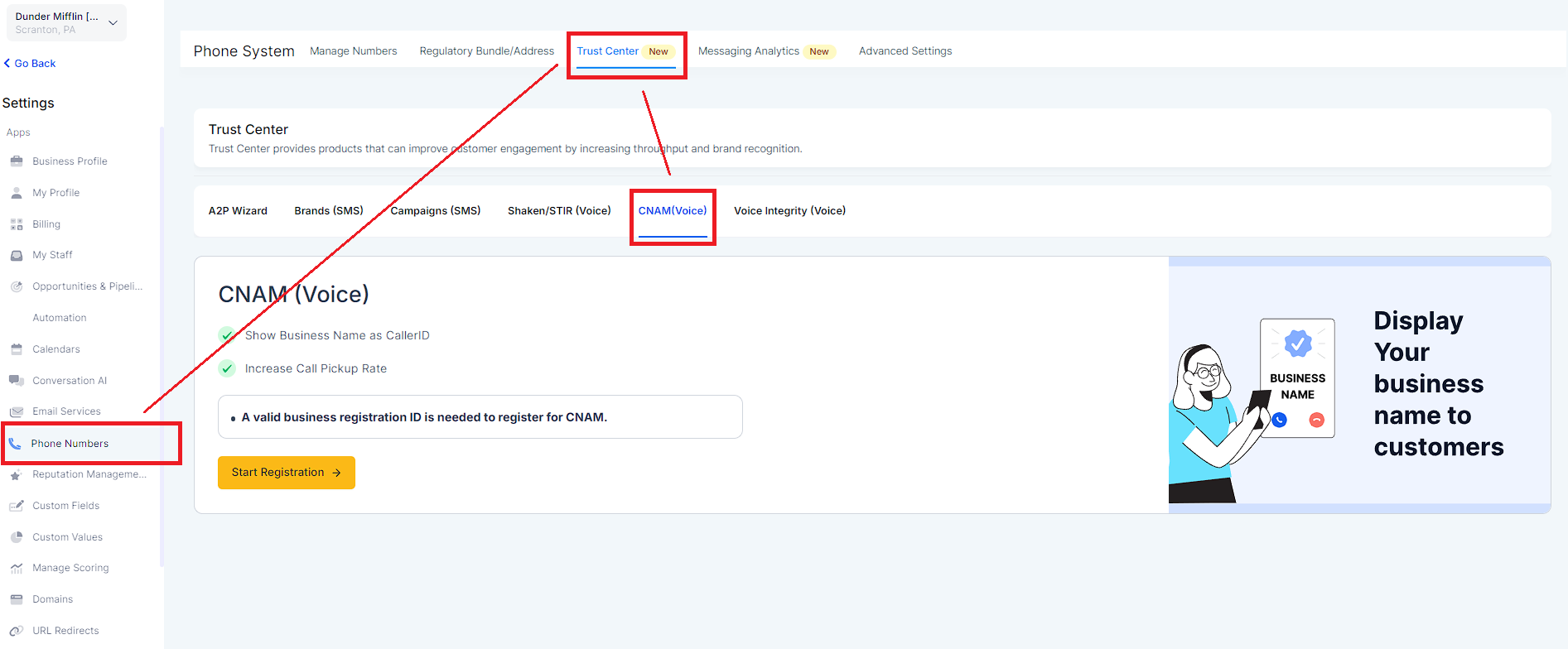
SHAKEN/STIR is a set of protocols designed to authenticate caller ID information and verify that it is coming from a legitimate source. The protocol works by using digital certificates to validate the caller's identity. When a call is made, the caller's identity is verified through these certificates, which are then stored in an online database. This ensures that when someone receives a call, they can trust that it is coming from who they think it is.
Note: SHAKEN/STIR won't remove nuisance labels but may boost answer rates due to the "Trusted Call" label.
After submitting their Business Profile, Agency and Sub-account admins can register for SHAKEN/STIR.

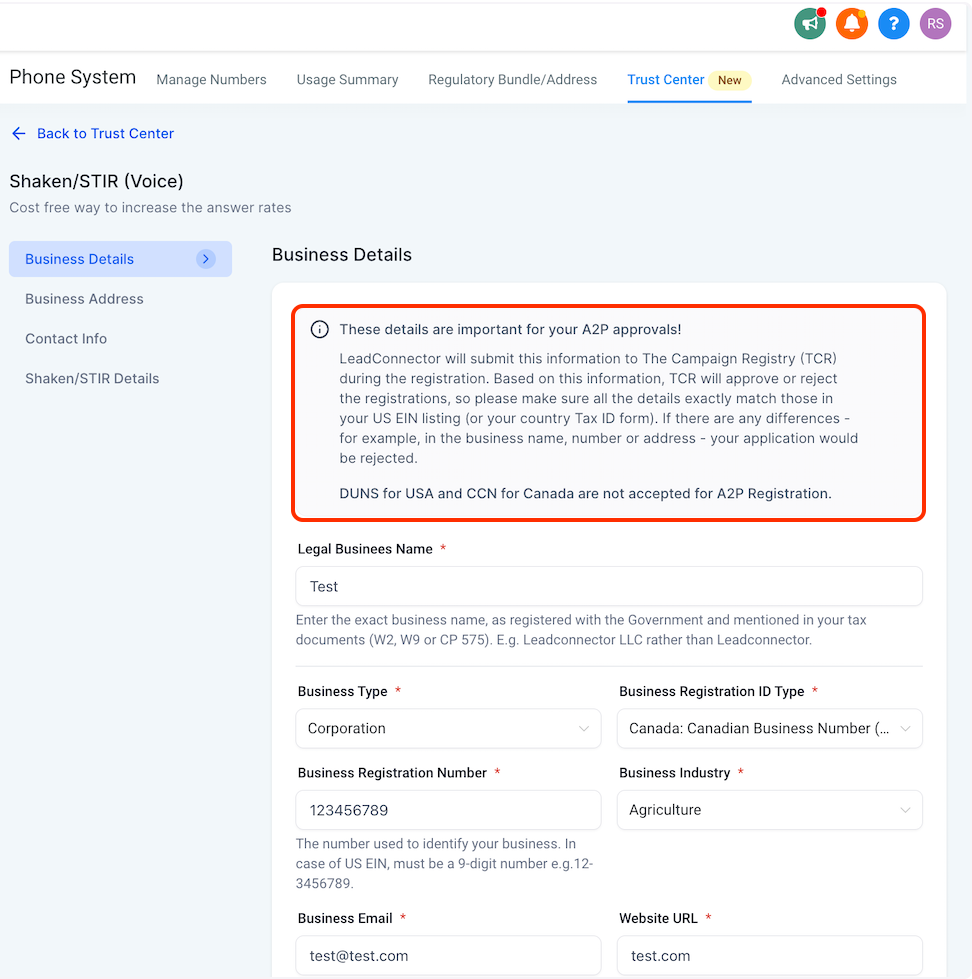
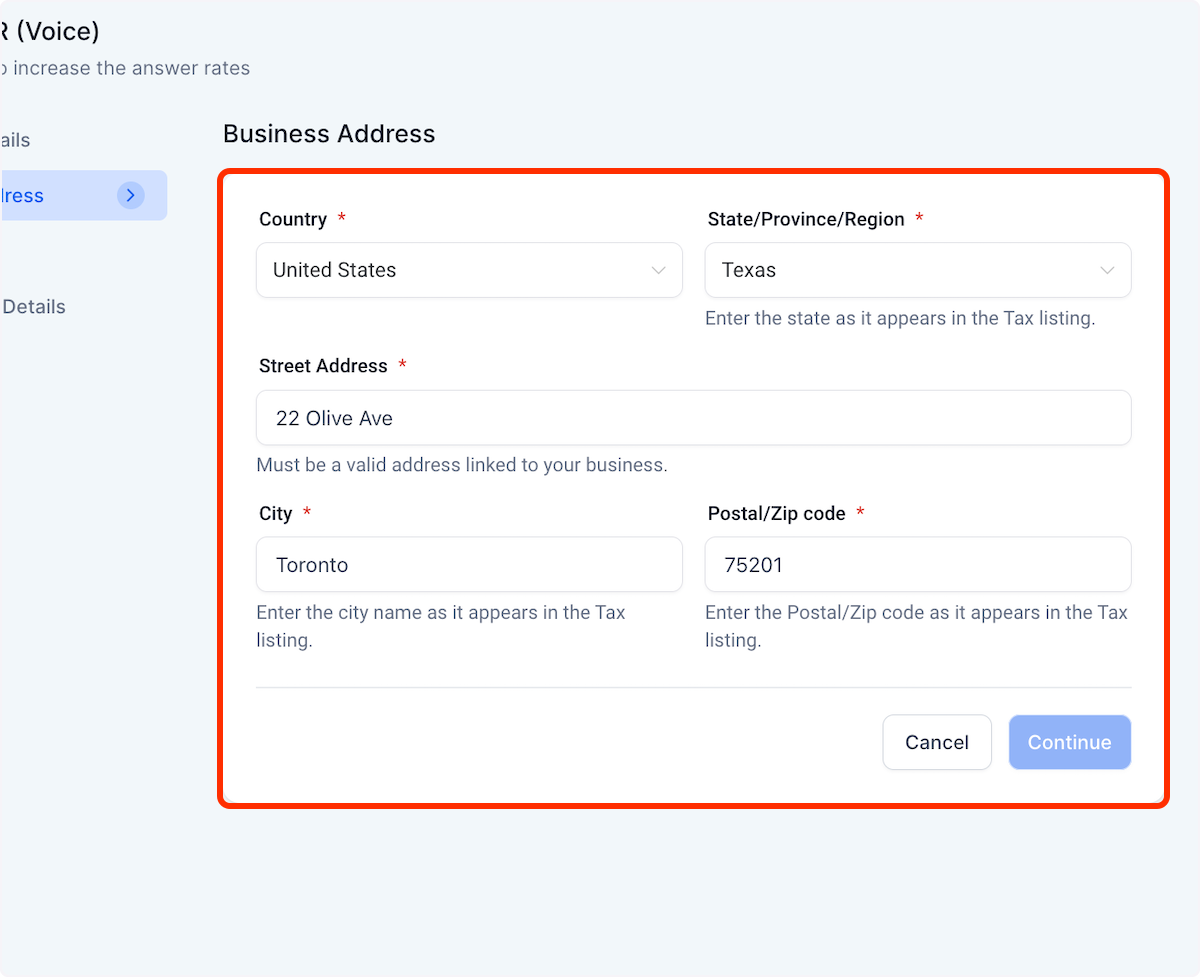
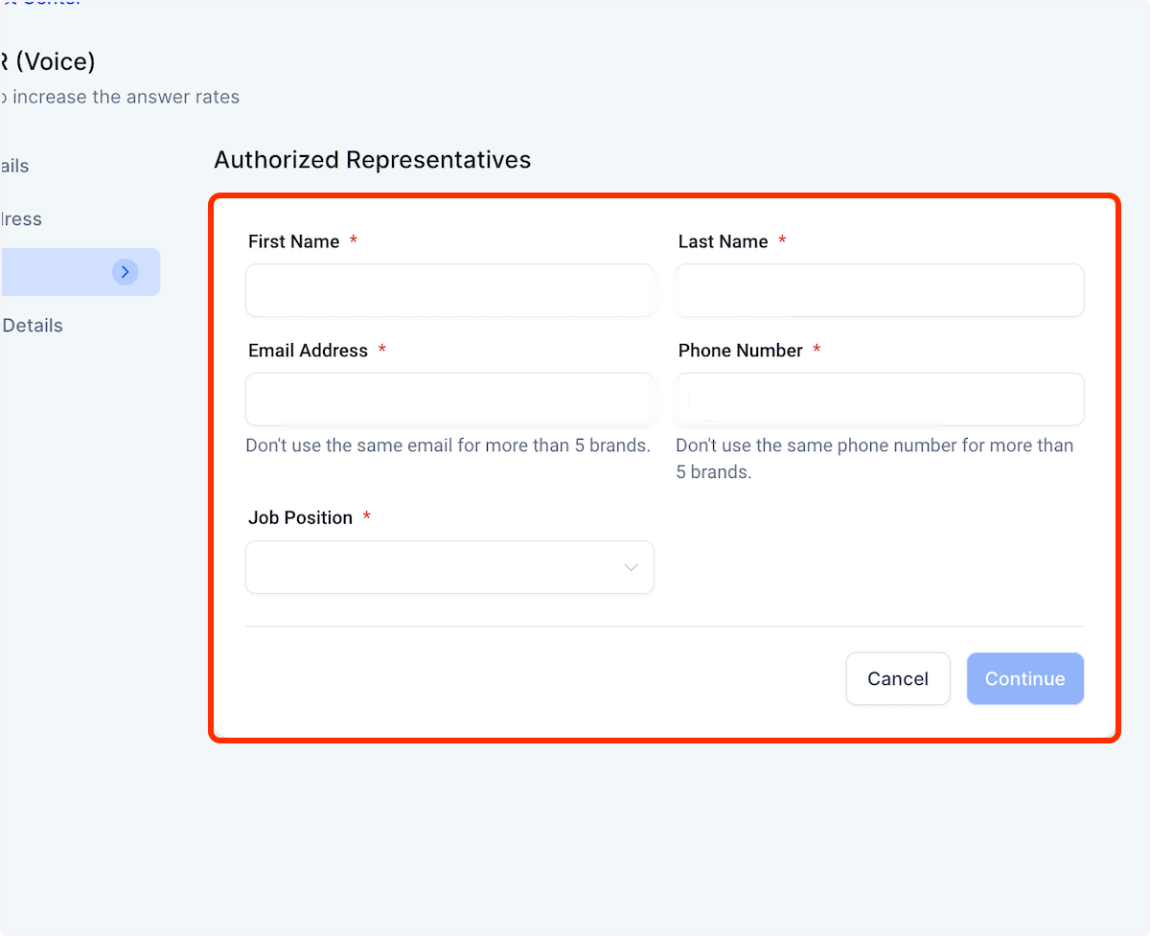
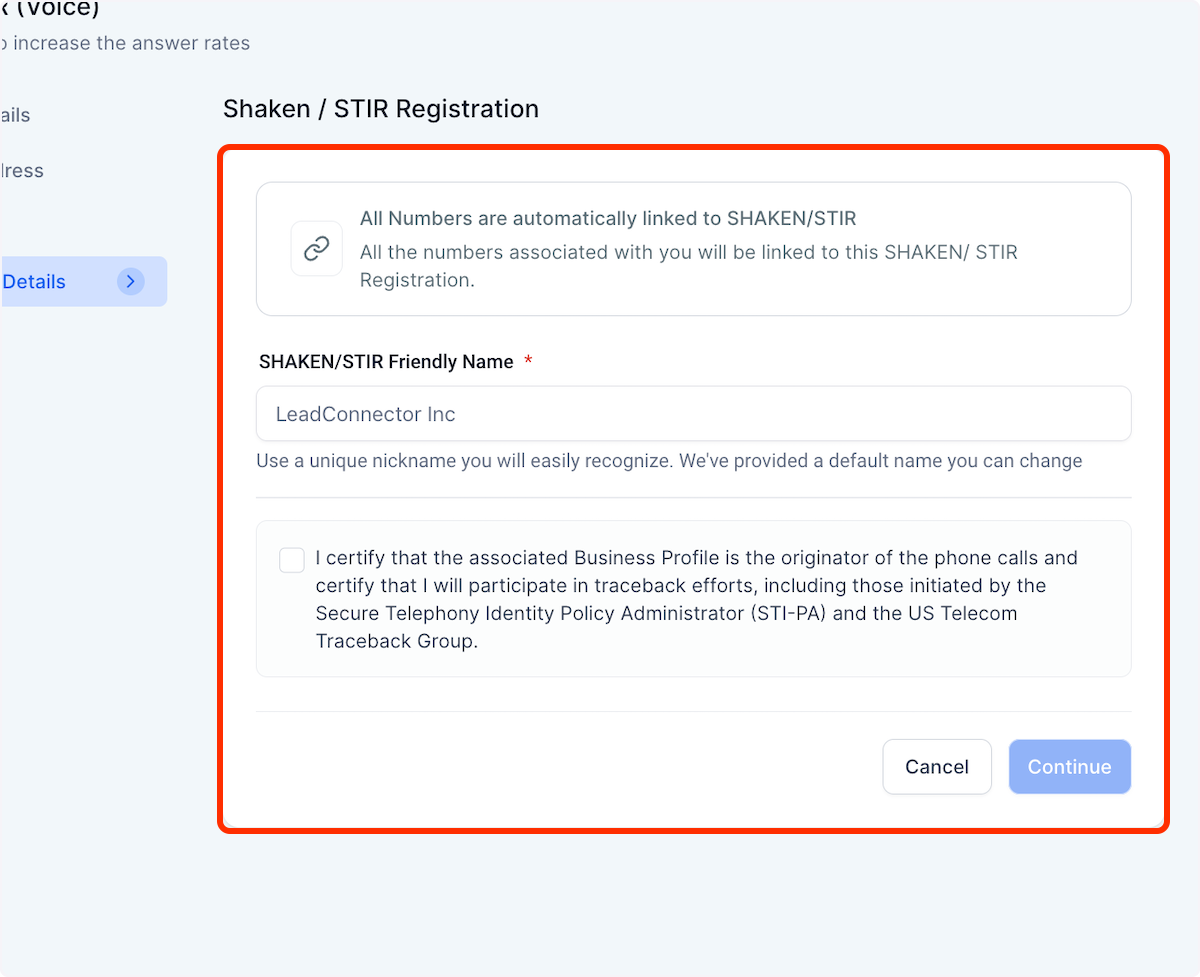
The approval might take up to 4 days.
A: All numbers will be Linked Automatically. All current available numbers and future bought numbers will automatically be linked with the registered SHAKEN/STIR.
A: To display the business name, it would be the CNAM Registration, a new feature that's coming soon. The verified caller ID feature only changes the Twilio number to display as the actual business number or the client's personal cell phone.
A: While registration often rectifies mislabeling, it's not foolproof. Registered numbers can still be flagged based on suspicious call patterns or consumer reports. Thus, we advise:
Monitoring call behavior for unusual traffic spikes.
Adhering to TCPA laws, FCC regulations, and our Acceptable Use Policy.
A: Absolutely. Nuisance labels aren't auto-removed when a number's